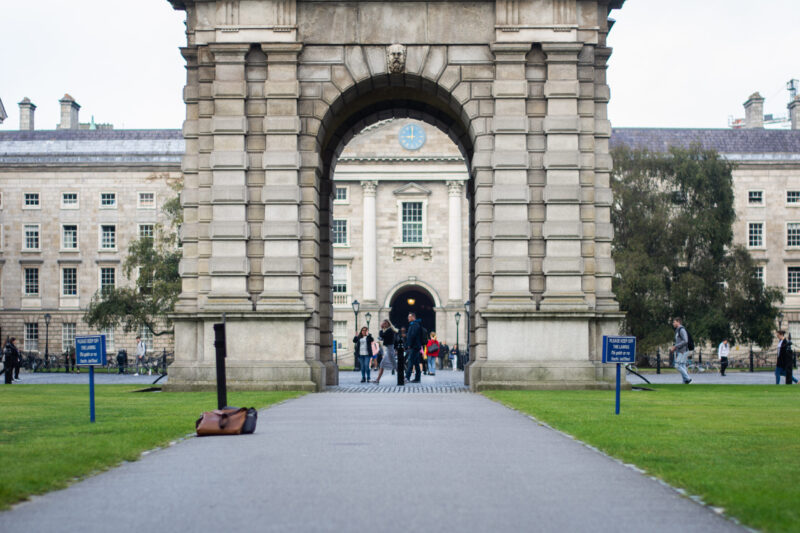An open letter, endorsed by 23 Trinity postgraduate students and two Trinity alumni, has condemned the disqualification of Prof Sarah Alyn-Stacey from the Provost election.
The letter – authored by Alexandra Corey, a PhD student in Trinity’s French Department, and published in The University Times earlier this evening – argued that the basis upon which Alyn-Stacey was disqualified is “obscure and antidemocratic”.
On Friday, this newspaper reported that Alyn-Stacey had been denied entry to this year’s Provost election, after a process that she said had “blurred” the distinction between an election and an appointment and given HR a “crucial role” in who will be the next Provost.
In a statement to her nominators – seen by this newspaper – Alyn-Stacey was highly critical of the interview committee and HR. She alleged that they “took it upon themselves to apply a different test from the statutorily-mandated prima facie test”.
In the open letter, Corey wrote that despite the criteria upon which she was disqualified Alyn-Stacey “has proven these qualities consistently”.
“As the founder and director of Trinity’s Centre for Medieval and Renaissance Studies (est. 1999), she has managed the Centre with excellent leadership and administrative expertise and has welcomed students from across the world to the conferences and seminars held under the aegis of the Centre.”
“She was elected to the Académie de Savoie and stands as an ambassador to Trinity’s good name at an intellectual institution with broad reach in France, Italy and Switzerland. She was knighted by the French government for her contributions to her field of research, earning the Chevalier de l’ Ordre National du Mérite in 2017 (the second highest honour in France).”
“As an international postgraduate student, I would not be at Trinity without the guidance of Prof Alyn-Stacey. I cannot imagine a candidate for Provost with greater leadership skills and a proven capacity to represent College externally.”
Corey used these examples to argue that: “Obviously, Prof Alyn-Stacey meets the prima facie criteria (“management and administrative skill” and “leadership skills and the ability to represent College externally”).”
In an email statement to The University Times on Friday regarding Alyn-Stacey’s disqualification, Tom Molloy, Trinity’s director of public affairs and communications, said: “While it would be wrong to comment on any individual application, the University is completely satisfied that the process meets the necessary criteria.”
“The steering committee, appointed by the Board under the statutes and which is chaired by the Registrar, has closely scrutinised the process on behalf of college to ensure that the process is transparent, fair and fully compliant with the college statutes.”
“The process as laid down in the statutes includes an interview committee appointed by the Board. The interview committee conducted the process in accordance with the statutes. Candidates may appeal a decision of the interview committee to the appeals committee, also appointed by the Board.”
“Under the statutes, candidates may also take a case to the Visitors: the Chancellor Dr Mary McAleese and the Judicial Visitor, Judge George Birmingham.”
“Finally, HR’s expertise in managing senior appointments was naturally used in the process to ensure that the criteria listed in the statutes was reflected in the interview process.”
Earlier this week, Sean Barrett, a recent pro-chancellor of Trinity, today blasted the interview committee’s decision to deny Alyn-Stacey entry to the Provost elections, referring to it as “Draconian and disproportionate”.
In a statement to The University Times, Barrett admonished the decision to disqualify Alyn-Stacey, saying that “our voting rights are diminished, and the good name of TCD is tarnished because Irish society is deeply committed to the ballot box without disqualifications”.
Barrett, who served as a member of the last Provost election’s interview committee, explained that: “In the wider democratic society, it is over a hundred years since the last Irish parliamentary disqualification.”







